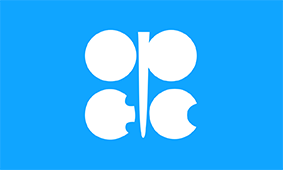
Oil demand to fall to 1995 levels in April: IEA

Global oil demand will fall by 29mn b/d in April from a year earlier to 70.4mn b/d, and by 26mn b/d year on year in May, as a result of the Covid-19 pandemic, the IEA said today in its latest Oil Market Report (OMR).
A gradual recovery will probably begin in June, although demand will still be 15mn b/d lower than a year earlier, it said. Overall the IEA sees demand in the second quarter lower by 23.1mn b/d than a year earlier, at 76.1mn b/d, and for the whole of 2020 it expects global demand to be down by 9.3mn b/d to 90.5mn b/d — this assumes that travel restrictions are eased around the world in the second half of the year.
"The recovery in the second half of 2020 will be gradual; in December demand will still be down 2.7mn b/d year-on-year," the IEA said.
It said the deal agreed last weekend by the Opec+ group will contribute to a 12mn b/d fall in production in May from April.
But although it expects additional output cuts to come from other countries it provided no guarantees. It said other producing nations could see output fall by 3.5mn b/d "in the coming months" because of low prices, with the US and Canada most likely to be affected. In the US, producers in Texas are debating whether cuts should be forced, or should occur through attrition.
Either way, the IEA sees lower supply shifting the market into a deficit in the second half of 2020, "ensuring an end to the build-up of stocks and a return to more normal market conditions," it said.
Its current demand and supply estimates imply a stock draw of 4.7mn b/d in the second half of this year. But an implied stock build-up of 12mn b/d in the first half of the year "threatens to overwhelm the logistics of the oil industry — ships, pipelines and storage tanks — in the coming weeks," it said. "Available capacity could be saturated in mid-year, based on our market balances."
"Never before has the oil industry come this close to testing its logistics capacity to the limit," it said.
It said that China, India, Korea and the US "have either offered their strategic storage capacity to industry to temporarily park unwanted barrels or are considering increasing their strategic stocks to take advantage of lower prices". But there was no sign of a definitive figure for this: yesterday, Saudi Arabia's oil minister Prince Abdulaziz bin Salman said the IEA would say 3mn b/d would be purchased for strategic storage over a two-month period.
Instead, the IEA said it is still waiting for more details on some planned production cuts and proposals to use strategic storage.
"If the transfers into strategic stocks, which might be as much as 200mn bl, were to take place in the next three months or so, they could represent about 2mn b/d of supply withdrawn from the market," the IEA said.
It noted that "the measures announced by Opec+ and the G20 countries will not rebalance the market immediately… but by lowering the peak of the supply overhang and flattening the curve of the build-up in stocks, they help a complex system absorb the worst of this crisis, whose consequences for the oil market remain very uncertain in the short term."
"There is no feasible agreement that could cut supply by enough to offset such near-term demand losses. However, the past week's achievements are a solid start and have the potential to start to reverse the build-up in stocks as we move into the second half of the year," it said.
By Konstantin Rozhnov


Trump weighs using $2 billion in CHIPS Act funding for critical minerals

Codelco cuts 2025 copper forecast after El Teniente mine collapse

Electra converts debt, launches $30M raise to jumpstart stalled cobalt refinery

Barrick’s Reko Diq in line for $410M ADB backing

Abcourt readies Sleeping Giant mill to pour first gold since 2014

Nevada army depot to serve as base for first US strategic minerals stockpile

SQM boosts lithium supply plans as prices flick higher

Viridis unveils 200Mt initial reserve for Brazil rare earth project

Tailings could meet much of US critical mineral demand – study

Kyrgyzstan kicks off underground gold mining at Kumtor

Kyrgyzstan kicks off underground gold mining at Kumtor

KoBold Metals granted lithium exploration rights in Congo

Freeport Indonesia to wrap up Gresik plant repairs by early September

Energy Fuels soars on Vulcan Elements partnership

Northern Dynasty sticks to proposal in battle to lift Pebble mine veto

Giustra-backed mining firm teams up with informal miners in Colombia

Critical Metals signs agreement to supply rare earth to US government-funded facility

China extends rare earth controls to imported material

Galan Lithium proceeds with $13M financing for Argentina project

Kyrgyzstan kicks off underground gold mining at Kumtor

Freeport Indonesia to wrap up Gresik plant repairs by early September

Energy Fuels soars on Vulcan Elements partnership

Northern Dynasty sticks to proposal in battle to lift Pebble mine veto

Giustra-backed mining firm teams up with informal miners in Colombia

Critical Metals signs agreement to supply rare earth to US government-funded facility

China extends rare earth controls to imported material

Galan Lithium proceeds with $13M financing for Argentina project

Silver price touches $39 as market weighs rate cut outlook

















